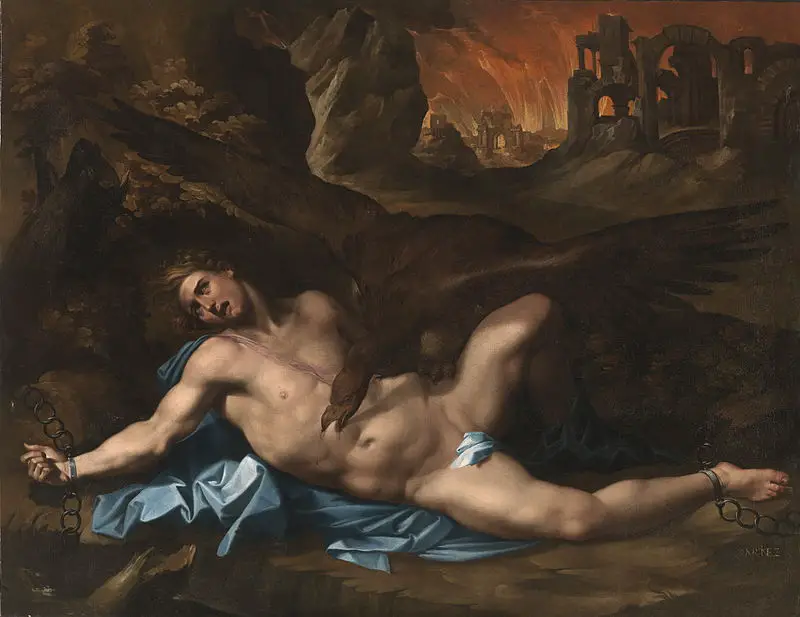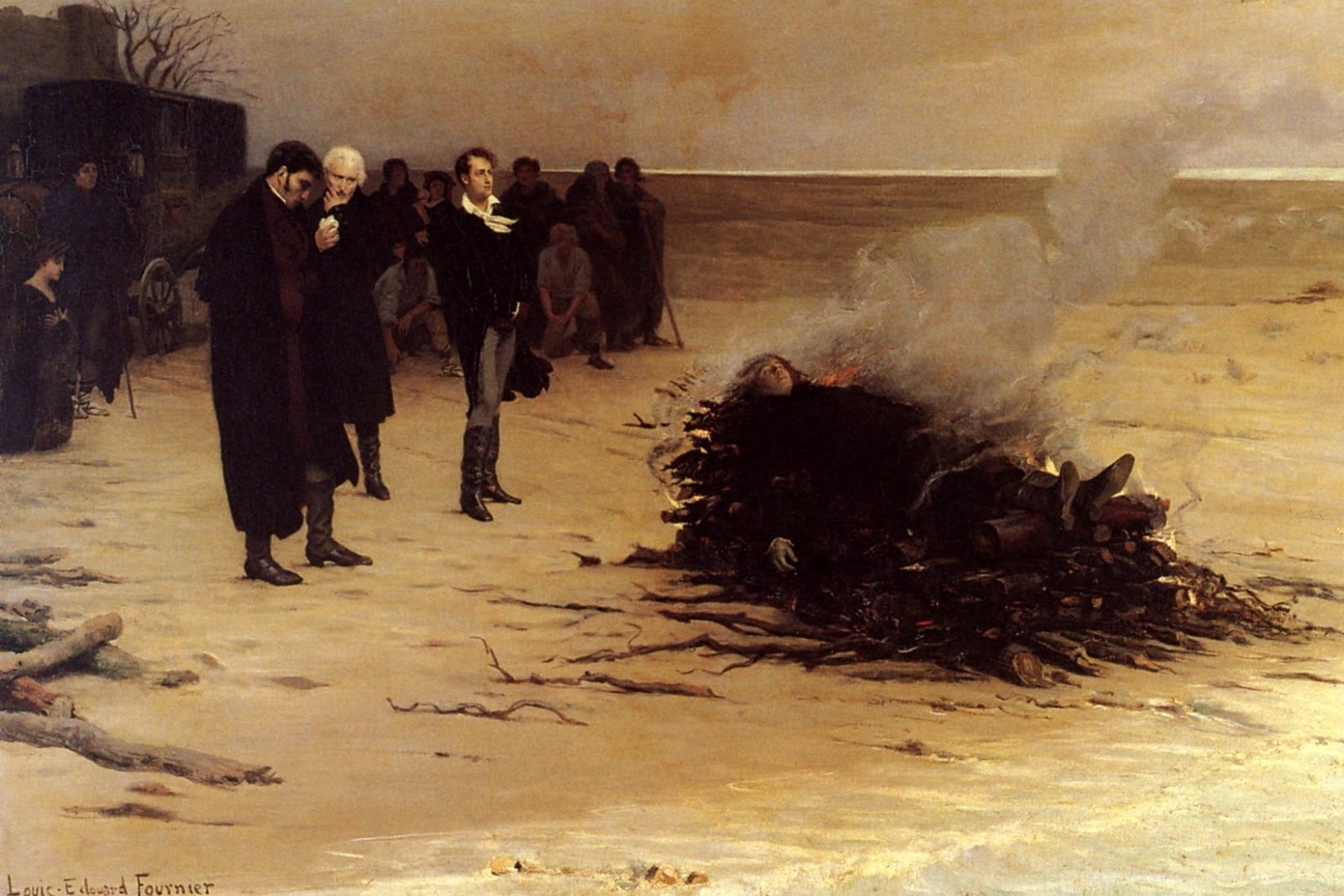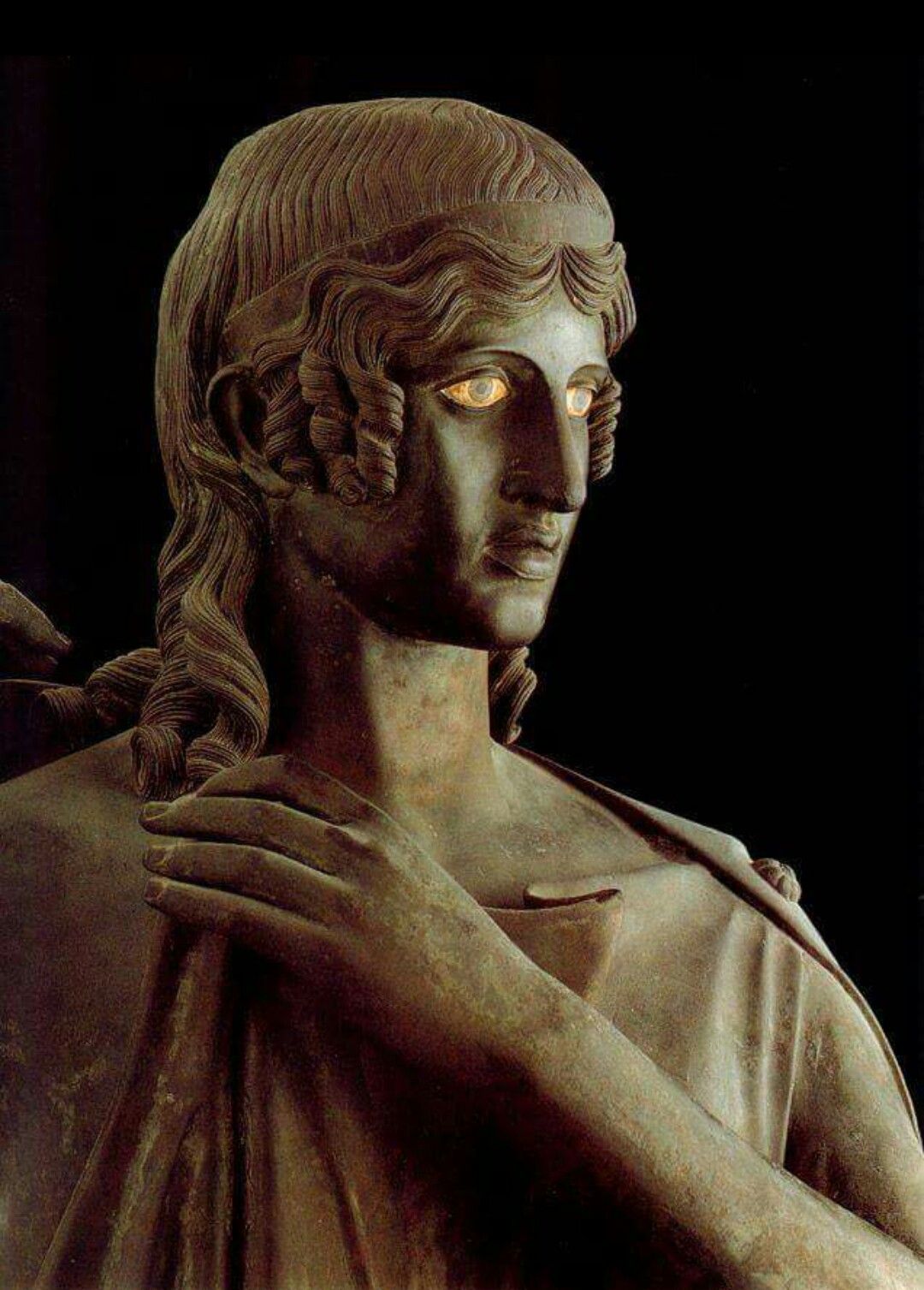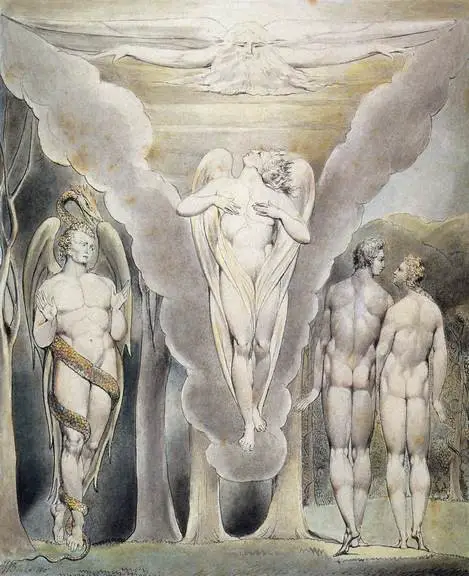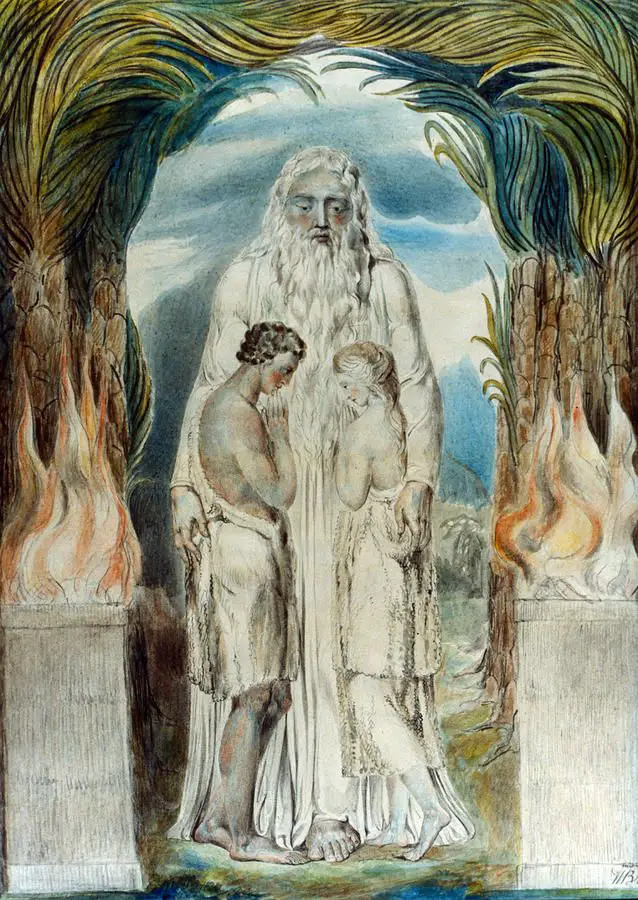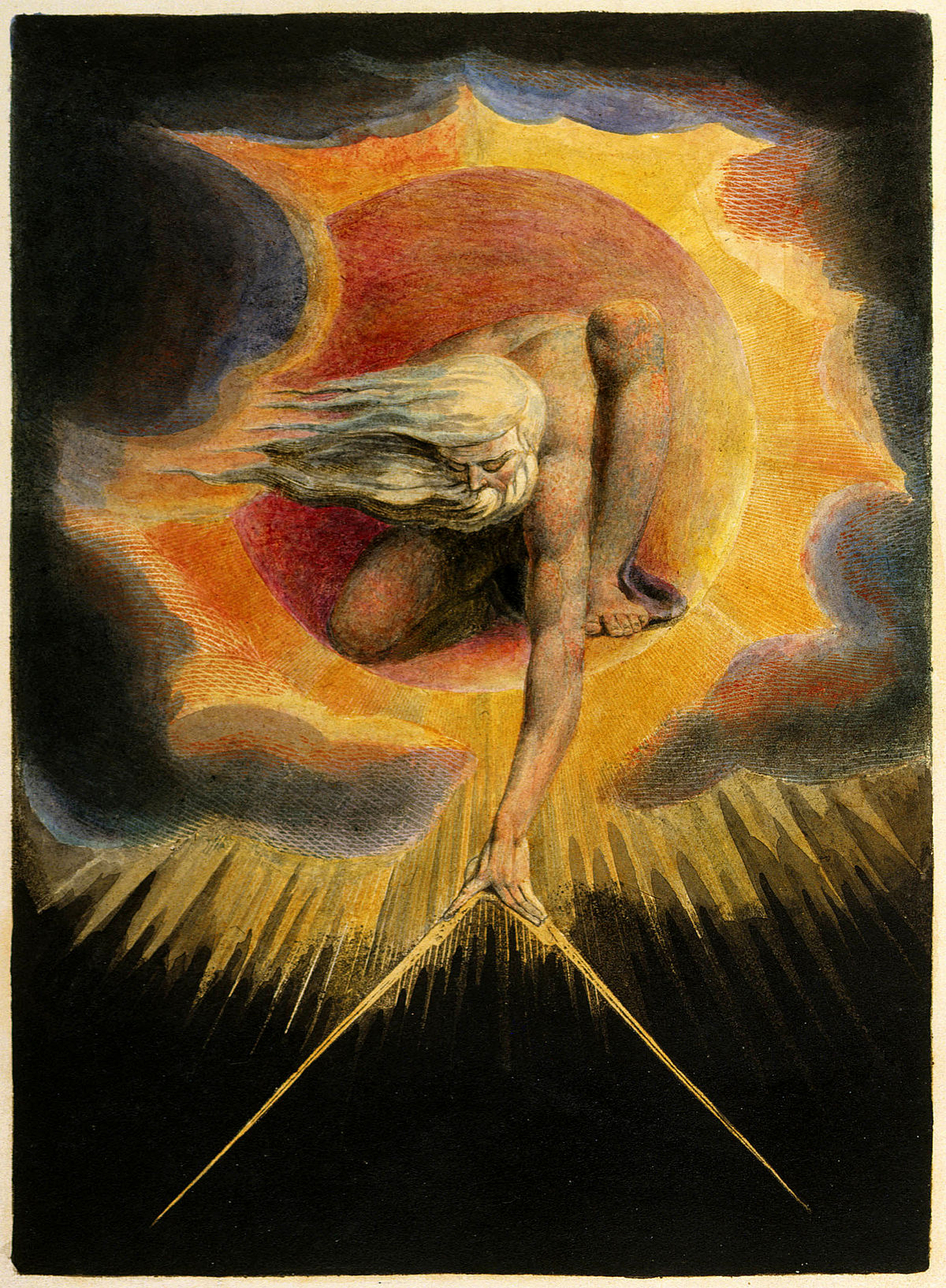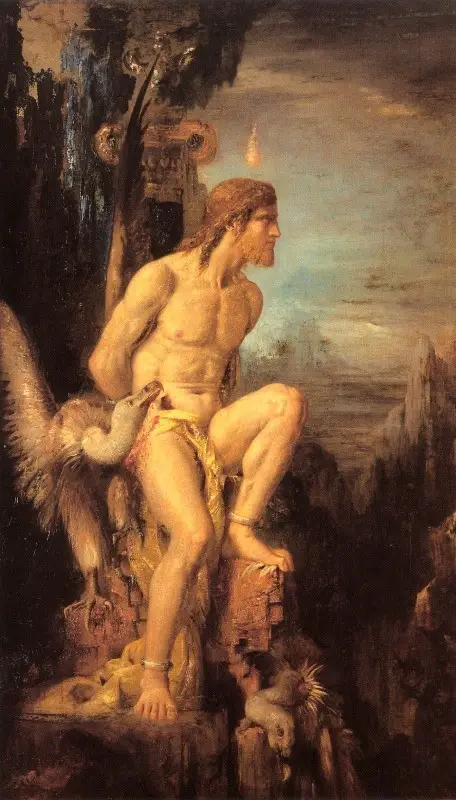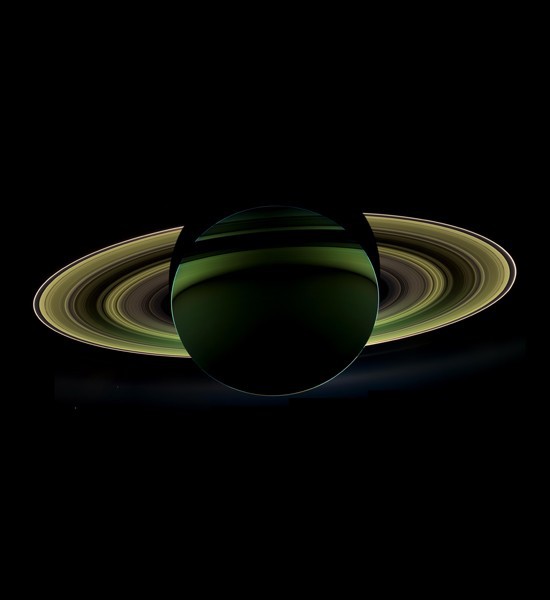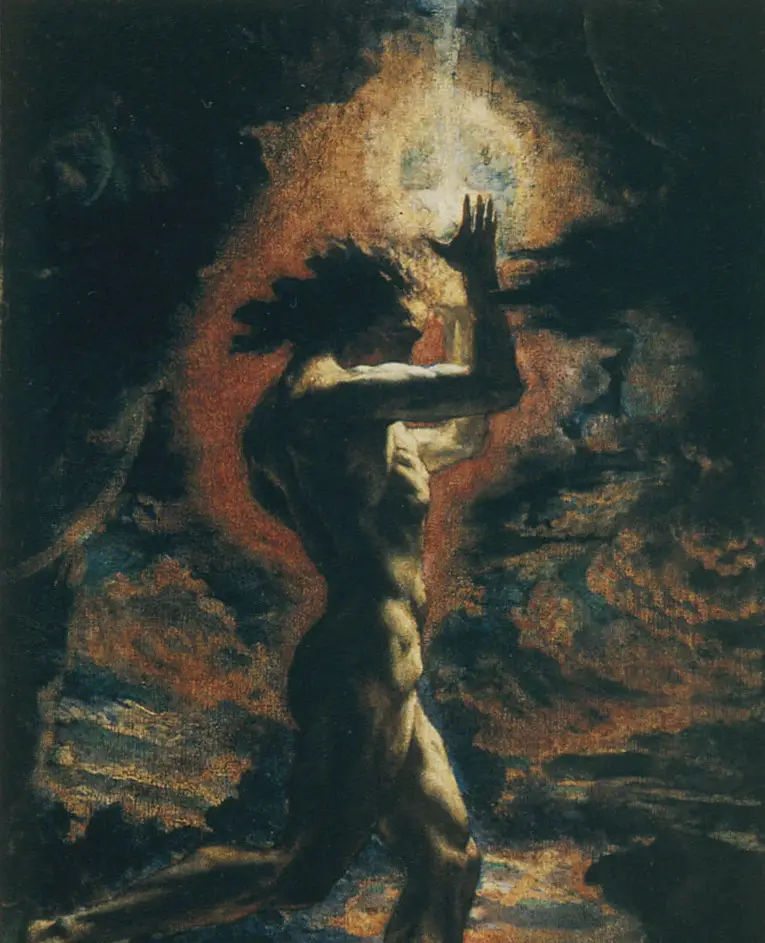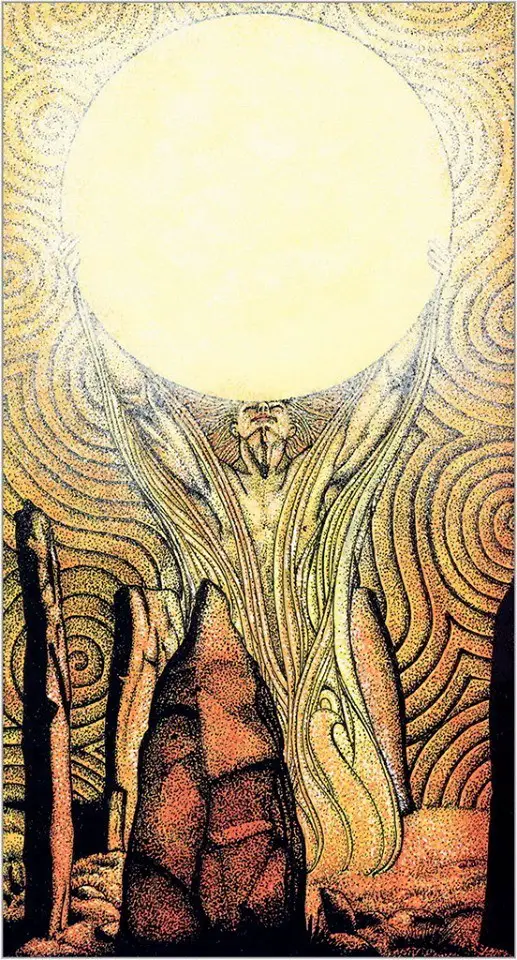Tag: Prometheus
Percy Bysshe Shelley: Prometheus in the Wind
8/7/1822 - 8/7/2020: almost two centuries from the drowning of Percy Bysshe Shelley, whose figure immediately became admired and venerated by the most restless spirits. The Prometheus who steals fire to give it to men, found in the English poet a version at the extremes of high ideality, in the name of a radical social and spiritual renewal. An unrepeatable season, here told through little-known sides of ours and through the profound influence on personalities very distant from each other, such as d'Annunzio, Crowley and Carducci.
Apollo the Destroyer: "coincidentia oppositorum" in hyperborean mysticism and eschatology
Although mostly considered in his "luminous" and "uranic" meaning, in the archaic tradition Apollo combines the most extreme dichotomies in his mystical and eschatology: the bow and the lyre, wisdom and "mania", depth and elevation, the catabasis and the journey in spirit to the White Island, the "Fall" of Being and the return of the Golden Age. Starting from ancient sources, we can find similar concepts not only to those of North Asian shamanism and Celtic spirituality, but even to the sacred vision of some modern poets — like Blake, Shelley and Yeats - whose Apollonian chrism will appear clearer to us if we analyze their “Weltanschauung” in the light of the Platonic and Heraclitean doctrines.
The sexual bipolarization, the "feminine" and the advent of human corporeality
In this new appointment of the cycle of articles “Manvantara” we will investigate the cosmological-traditional meaning of the two sexes, as well as the modalities and consequences connected to their differentiation, with particular regard to the human level.
The Second Half of the Paradise Age: Some Preliminary Concepts
In this new appointment of the "Manvantara" cycle we pass to analyze the passage between the first Great Year and the second and, consequently, the 'fall' in form and time and the separation of the two principles male (Adam) and female (Eve) .
The Demiurge and the positive possibility: shaping
In this fifth appointment of the "Manvantara" cycle we are going to analyze, after the "negative way of the Demiurge" outlined in the previous article, the specular "positive way": the shaping of man or anthropogenesis.
The Demiurge and the Negative Possibility: Fall
In this fourth appointment of the “Manvantara” cycle, we analyze the theme of the fall of being into matter, starting with its most famous symbol: the rebellion of Lucifer and the Fallen Angels.
Saturn, the Black Sun of the early days
An in-depth analysis of the most ancient sources in our possession leads us to the conclusion that, 'in illo tempore', in a perspective of "stellar symbolism" (and not yet "solar"), Saturn was considered the true King of Heaven.
The "Heavenly Fire": Kronos, Phaeton, Prometheus
di Andrew Casella
cover: Jean Delville, Prometheus, 1907)
[Continued from The astronomical significance of the Golden Age: Astrea and the "fall" of Phaeton]
In a Mongolian wedding prayer it is stated that: "Fire was born when Heaven and Earth separated": Therefore, before the celestial equator (Father Heaven) and the ecliptic (mother Earth) moved away (ie the inclination angle of about 23 ° of the ecliptic with respect to the equator was recorded), the" Fire " did not exist. At the beginning, the Milky Way united heaven, earth and the world of the dead: the southern part of the Galaxy, in correspondence with Scorpio and Sagittarius, is, for many traditions, the place dedicated to the collection of souls waiting to reincarnate.

